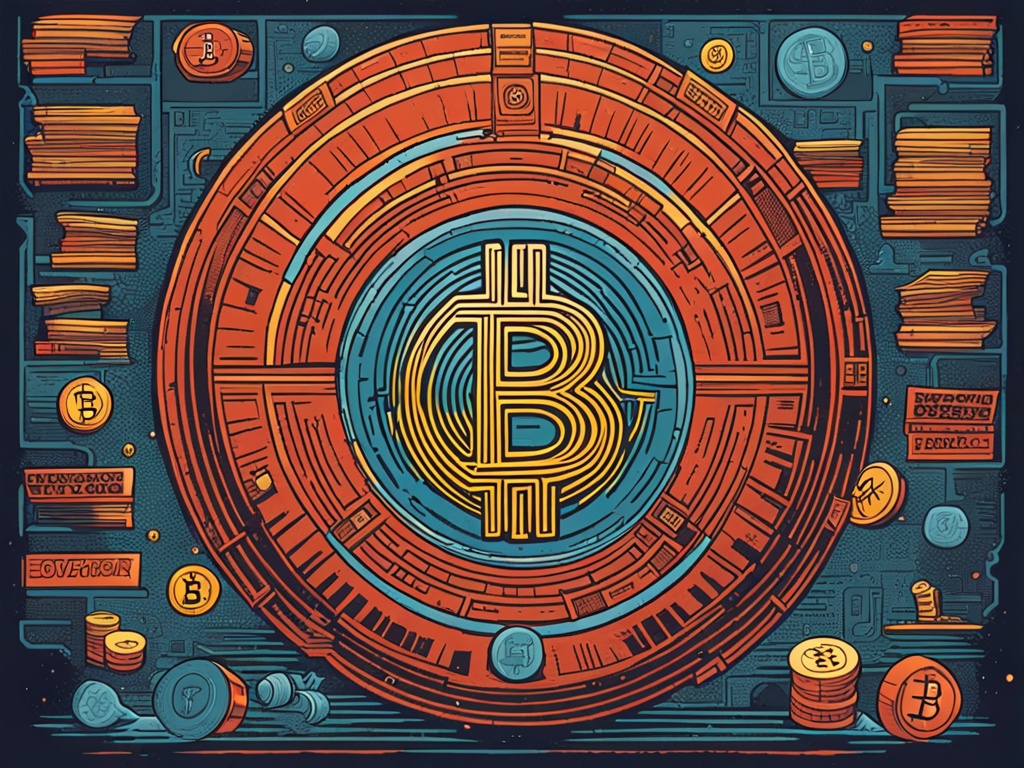Groundbreaking Ruling on Smart Contracts ⚖️
The Fifth Circuit Court has made a significant legal determination that immutable smart contracts do not qualify as property and can’t be subjected to sanctions as per existing laws. This ruling provides a substantial support to Tornado Cash, a cryptocurrency mixer previously sanctioned by the U.S. Treasury.
Key Takeaways 📝
- The ruling from the Fifth Circuit challenges the classification of autonomous software within blockchain technology.
- Following the announcement, Tornado Cash’s TORN token experienced a substantial increase in value.
- The wider decentralized finance (DeFi) market also showed remarkable growth in both daily and weekly metrics.
- Major DeFi tokens reached impressive multi-month highs.
- Despite the court ruling in favor of Tornado Cash, developer Alexey Pertsev remains in custody.
Details of the Court’s Decision 📜
This remarkable ruling indicates that autonomous software, specifically referring to immutable smart contracts, exists outside the conventional property definitions that legal structures currently recognize. The court established that when smart contracts cannot be altered or controlled by any entity, they do not meet the criteria to be sanctioned under existing legal frameworks.
The swift reaction from the markets highlighted the significance of the decision. The TORN token surged dramatically, reaching nearly $35 shortly after the ruling, which translates to an extraordinary gain of about 380%. As the situation settled, TORN stabilized around $17.17 while still maintaining a considerable increase from its pre-announcement state.
Market Reactions 📈
The announcement spurred a significant upswing in the decentralized finance sector. According to CoinGecko, the total DeFi market cap observed a 8.2% increase over a single day and a remarkable 21.5% surge over the course of the week.
- Uniswap’s UNI token saw an 11% rise, reaching its highest valuation in eight months at $12.50.
- Aave’s AAVE token increased by 8.6%.
- Ethena’s ENA token experienced a notable rise of 23%, marking new multi-month highs.
Public reactions included praise from notable figures in the crypto space, including former Coinbase CTO Balaji Srinivasan. He expressed his views on social media, stating that privacy and smart contracts emerged victorious while the Office of Foreign Assets Control (OFAC) faced a setback.
Implications for Developers and the Industry 🛠️
Investment analysis from 10X Research suggests that while this ruling does not condone money laundering, it sets a significant precedent allowing developers to design and release smart contracts without the looming threat of sanctions, provided they do not impose fees.
The ruling is particularly beneficial for the Ethereum network, which hosts most decentralized applications and DeFi protocols. It lays down clearer guidelines for developers regarding what can be constructed without the risk of regulatory pushback.
Furthermore, while privacy-centric cryptocurrencies showed initial price increases, their growth has since eased, settling at around a 2% increase over the past 24 hours. The broader digital currency market demonstrated strength too, with Bitcoin temporarily hitting $97,360 before stabilizing at $96,320, signifying a 5% rise in the last 24 hours.
Legal Context and Future Outlook 🔍
While this ruling signals a legal victory for advocates of privacy and blockchain technology, it is crucial to note that the developer of Tornado Cash, Alexey Pertsev, continues to be detained. He faced a conviction in May by a Dutch court for money laundering and has recently had his pre-trial detention sustained.
According to 10X Research, this decision could induce extensive effects on the DeFi ecosystem, especially for Ethereum-backed protocols. It effectively distinguishes immutable smart contracts from conventional property, potentially altering how regulatory authorities engage with decentralized technologies.
This sets up a more favorable context for developers, enabling them to establish new protocols with reduced immediate regulatory concerns, as long as they uphold genuine immutability and forgo fee-based structures.
Final Thoughts 🌟
Responses from the market indicate that investors perceive this development as a positive advancement for the broader cryptocurrency landscape, particularly for those focusing on privacy and decentralized finance.





 By
By
 By
By
 By
By
 By
By
 By
By
 By
By